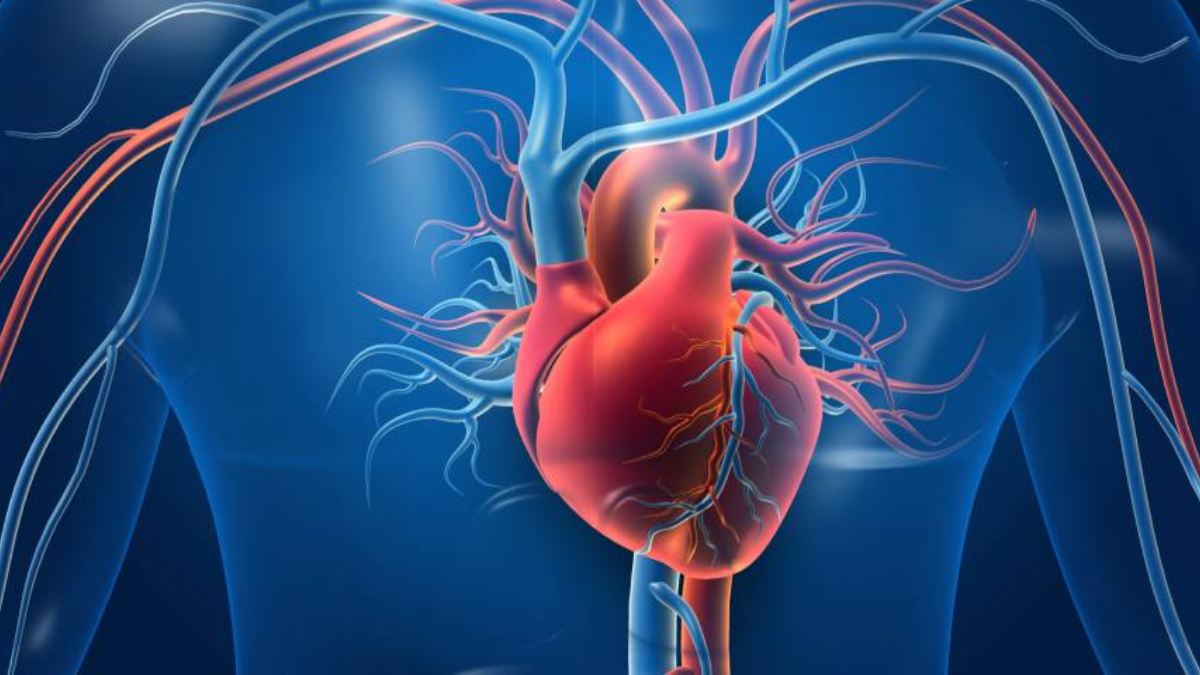
In a world that celebrates hustle culture and late-night productivity, sacrificing sleep has become something of a badge of honour. But new research is ringing the alarm bells on what even a few nights of poor sleep can do to your heart. A recent study from Uppsala University in Sweden has revealed that just three consecutive nights of restricted sleep can significantly increase the risk of heart-related issues, even in young, healthy individuals.
Table of Content:-
The Science Behind the Sleepless Danger
Researchers at Uppsala University closely monitored a group of 16 healthy young men in a controlled lab environment. Every detail of their stay—from diet and light exposure to physical activity—was carefully regulated to remove outside interference.

The participants followed two sleep routines: one with adequate rest (8.5 hours of sleep per night) and another with sleep deprivation (only 4.25 hours per night for three nights). After each sleep cycle, participants underwent high-intensity cycling workouts. Blood samples were taken before and after the exercise, and what scientists found was deeply concerning.
Also Read: The 12-3-30 Workout: Is This Viral Treadmill Trick Really Worth The Hype?
The Inflammatory Connection
The blood tests revealed that short-term sleep deprivation led to a spike in inflammatory proteins. These proteins are natural markers the body produces under stress or during illness. However, when they remain elevated for too long, they can begin to harm the body, especially the cardiovascular system. Persistent inflammation is a known contributor to heart conditions such as:
- Coronary artery disease
- Heart failure
- Atrial fibrillation (irregular heartbeat)

The study showed that after just three nights of poor sleep, the body’s ability to regulate these inflammatory markers was compromised. In other words, even young, otherwise healthy individuals began to show signs that their cardiovascular systems were under stress.
Sleep and Exercise: A Weakened Response
Interestingly, the research also found that the usual benefits of exercise were dampened in the sleep-deprived participants. Normally, exercise boosts helpful proteins that support heart health and muscle recovery. But in the group with limited sleep, this response was blunted. That means even if you’re hitting the gym regularly, poor sleep may be negating some of the heart-healthy benefits you expect to gain.
Time of Day Matters Too
Another compelling discovery was that protein levels fluctuated more significantly depending on the time of day in sleep-deprived individuals. This variation further emphasises how lack of sleep can throw off the body’s internal rhythms, disrupting not just energy levels but also the effectiveness of essential physiological responses.

What This Means for You
This study serves as a wake-up call—literally. Even short-term sleep deprivation can trigger changes in the body that pave the way for serious heart conditions later in life. It's not just chronic insomniacs or shift workers who need to be concerned. If you frequently pull all-nighters or average only a few hours of sleep during stressful work weeks, your cardiovascular system could be paying a heavy price.
Also Read: Craving Chocolate On Your Period? Nutritionist Explains Why Dark Chocolate Is A Must For Women
Prioritising Sleep for a Healthy Heart
Getting quality sleep should no longer be viewed as a luxury—it’s a non-negotiable component of a healthy lifestyle. Experts recommend:
- 7 to 9 hours of uninterrupted sleep each night
- Maintaining a consistent sleep schedule
- Limiting screen time before bed
- Creating a relaxing nighttime routine
Bottomline
The takeaway is clear: sleep isn't optional when it comes to heart health. Skimping on rest for even a few nights disrupts your body’s balance and can raise the risk of long-term cardiovascular problems. In an age where productivity is prized, it's essential to remember that the most sustainable performance comes from a well-rested body and mind. So the next time you're tempted to trade sleep for an extra hour of work, remember—it’s your heart that could pay the price.
Also watch this video
How we keep this article up to date:
We work with experts and keep a close eye on the latest in health and wellness. Whenever there is a new research or helpful information, we update our articles with accurate and useful advice.
Current Version